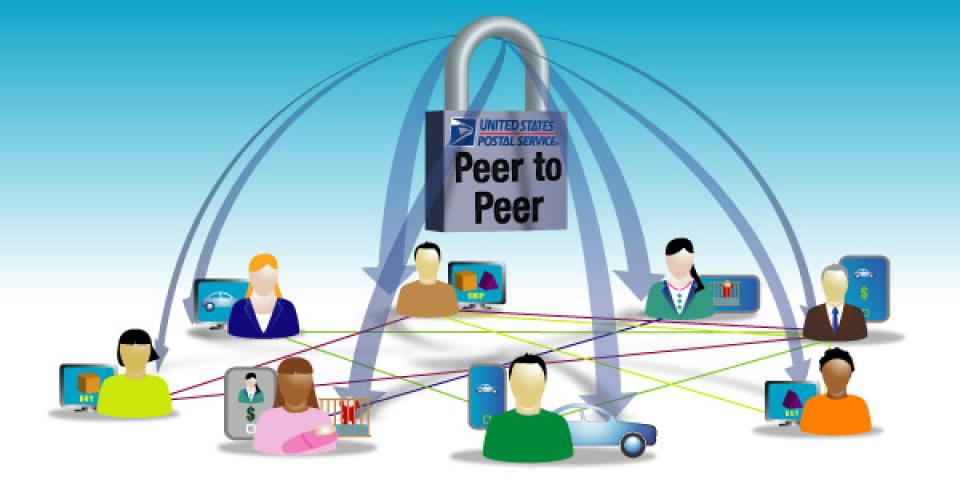Peer-to-Peer Commerce and the Role of the Postal Service
January 14, 2013 (RARC-WP-13-005)
The term peer-to-peer (P2P) commerce refers to a model of a marketplace where individual consumers — peers — trade goods, services, and rentals directly. The U.S. Postal Service can play unique and positive roles in the expansion of the P2P marketplace.
P2P commerce is a large and important segment of retail e-commerce. Today’s P2P marketplace is fairly new, immature, and has not been widely studied. P2P market participants face the challenge of balancing convenience, privacy, and the risk of potentially becoming victims of financial crime and even physical violence. Despite ongoing market attempts to address these issues, many shortcomings and challenges remain that can discourage participants and slow the growth of innovation and commerce.
This paper provides a documented overview of P2P digital commerce. It includes an examination of specific market facilitators that may be familiar names (eBay, Craigslist, etsy, and others) as well as newer P2P service facilitators such as Airbnb, Getaround, and TaskRabbit. Common attributes of facilitators are discussed, along with how payment processing and various customer service issues may be handled. The paper also identifies gaps and problems in today’s marketplace and discusses Postal Service products and services that exist today or may be developed in the future to facilitate this market. Among other things, the Postal Service could raise confidence among buyers and sellers, broaden accessibility to allow more participation in the P2P market, and provide for enforcement and accountability.
Many postal services are already used in P2P markets; the Postal Service has some opportunities to further extend these. Adding digital identity and in-person proofing services could help eliminate many of the fraud and safety problems being experienced today. Potential products such as Digital COD and Digital Escrow in conjunction with authentication services could play a role in reaching the unbanked and underbanked populations in the U.S., thus allowing more participation in digital commerce. Further, since P2P commerce applies to both local and geographically dispersed markets, a digital identity service and other postal services for the P2P market would help solidify the Postal Service’s role as a hub within the community for facilitating commerce.

